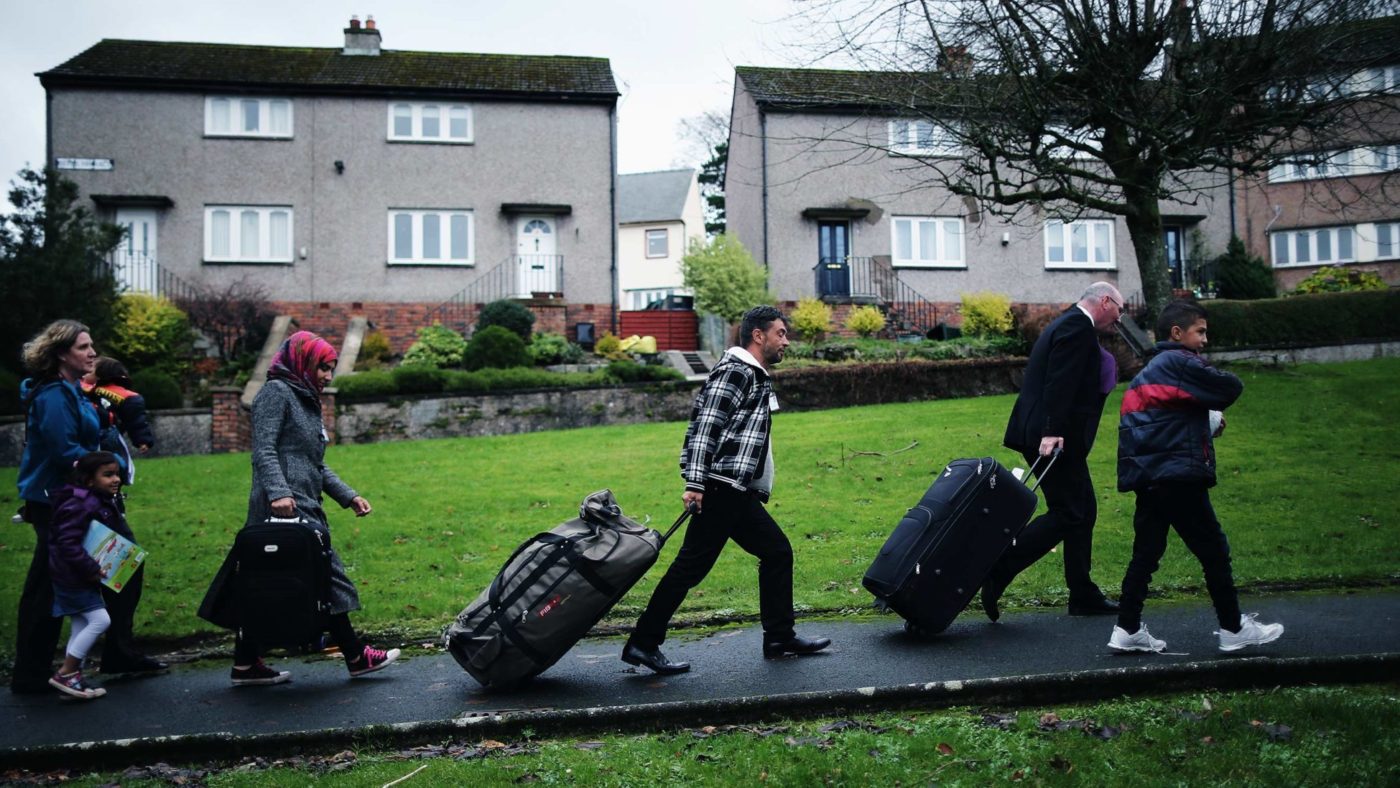Over the last four years, the number of unaccompanied children in the UK seeking asylum has almost doubled. In 2014 there were 2,760. Last year there were 4,480.
Local authorities might not have a remit for foreign policy. But “a quarrel in a far away country between people of whom we know nothing”, as Neville Chamberlain put it, can still end up with consequences for those in our town halls. A decision to accept refugees might be a matter for central Government. The Prime Minister or Home Secretary can announce a figure in the House of Commons. But it is usually for councils to accommodate new arrivals. And that is how the numbers are turned into reality.
Anyone can make high-minded proclamations about meeting our moral obligations. There then follows the vulgar matter of who will provide the space and pick up the tab.
The Local Government Association, a sort of trade union for councils, says that council spending for these asylum-seeking children has risen from £77m to £152m. The Home Office responds that councils who look after unaccompanied asylum-seeking children receive £41,610 a year for under-16s and £33,215 a year for those aged 16 and 17. So on the LGA’s own figures that should mean the cost is fully met.
But the LGA says the figures cover “assessment and care management” but don’t include “the cost of a child’s care placement, meaning overall care costs are likely to be much higher.” I think they mean that the social workers salaries are paid for, but not the payments to the foster carers. The Home Office responds that it is “reviewing the funding arrangements” but cunningly adds: “It is right that we take time to thoroughly assess the evidence.”
What is dreary about this statistical spat is the defeatism. It is taken as a given that each child provided with sanctuary should represent a huge burden on public funds. I wish more energy went into how that cost could be reduced, rather than which branch of the state should pay it. These applies not only to unaccompanied children but to families and adult refugees.
When I was a councillor in Hammersmith and Fulham I pressed the Council to accept more under the the Syrian Vulnerable Persons scheme. This arose after a young Syrian boy was photographed washed up dead on a beach in Turkey in 2015. The shocking image prompted public opinion to be in favour of “doing something” to alleviate the refugee crisis. David Cameron announced that the UK would take 20,000 Syrian refugees by 2020. Technically those under this scheme are not asylum seekers but granted “humanitarian protection status”.
Opposition politicians complained that figure was too low — but then many Labour and Lib Dem councils refused to actually take any at all. As so often there was more enthusiasm for virtue signalling than practical assistance.
Many British families did make genuine offers to help. But part of the problem has been that only self-contained accommodation is considered. Someone with a spare room (or two or three spare rooms) and willing to offer them is refused. Councils make the feeble excuse that they are following Home Office guidance. It is only guidance not a legal requirement, but it would certainly help if it was made more flexible.
There could well be cases where offering a family a chance to stay in spare rooms in someone’s house might be better than a self-contained alternative. A friendly resident landlord or landlady might well be of great help in community integration.
In any case, if enough self-contained accommodation can not be found, then the alternative is indeed between living in spare rooms – or remaining languishing in the camps in Jordan, Lebanon or Turkey.
In terms of unaccompanied children, many would be willing to provide them with homes whether as foster carers (a paid temporary arrangement) or adoption (an unpaid permanent offer where the child would become a member of the family). The difficulty is that the delays and burdens involved before such offers would be accepted are huge. So those making them are soon discouraged. That process is so absurdly convoluted that the cost to the taxpayer gets pushed so high. Hence the number of children granted sanctuary remains pitifully small.
Then we have the exasperating rules restricting refugees from being able to work. Often Syrian refugees, and those from elsewhere, speak English, are well-educated, and have much needed skills. They might well have contacts here who could help them find jobs. Yet legal restrictions prohibit them from working for 12 months. In Germany asylum seekers are allowed to work after three months. Why have any restriction at all? Often British people are then resentful that the refugees sit at home “sponging on benefits” rather then troubling with an honest day’s work. The misunderstanding is unfortunate, to put it mildly.
It is right that we should honour our tradition as a nation to be as generous as possible to those fleeing persecution. But we should not assume that all refugees will be a burden. It is also part of our history that we have been well rewarded over the centuries by that contribution they have made. At present the arrangements are broken. That means that the expense is great while the number helped is all too low. Instead of buck-passing, the politicians, local and national, should sort out sensible changes to fix the system.


